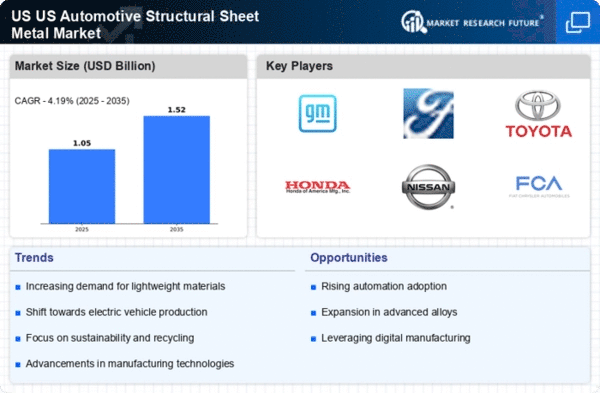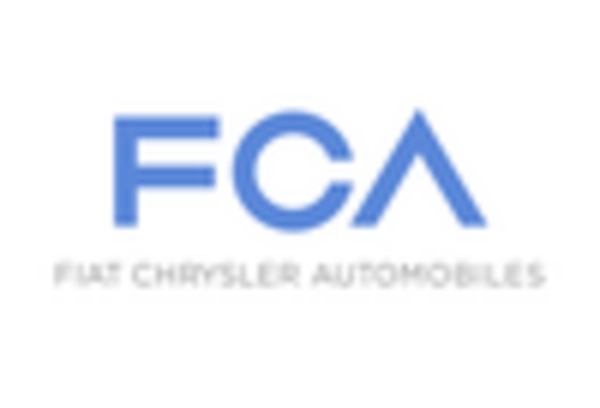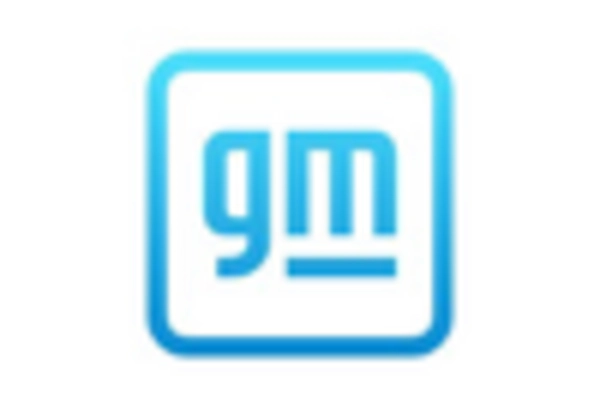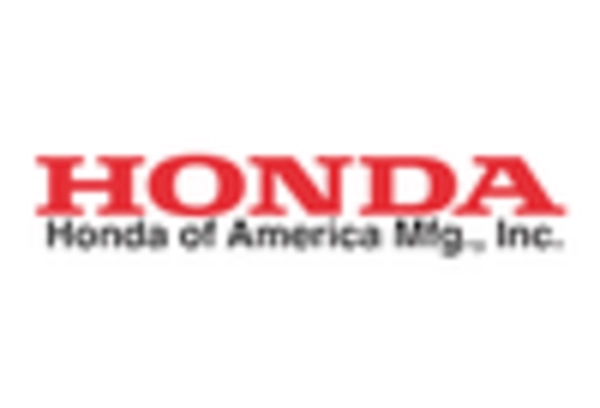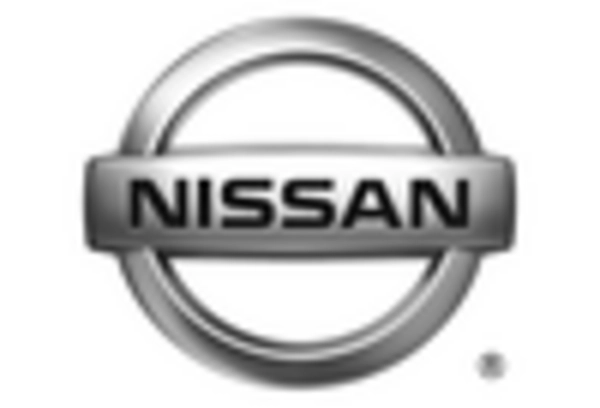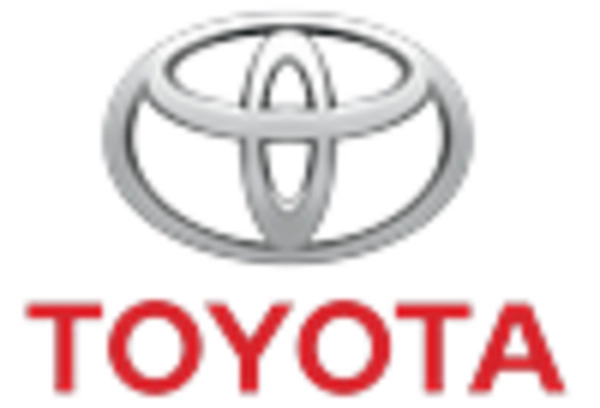Growing Demand for Electric Vehicles
The US Automotive Structural Sheet Metal Market is experiencing a notable surge in demand due to the increasing popularity of electric vehicles (EVs). As automakers pivot towards electrification, the need for lightweight and durable structural components becomes paramount. In 2025, the EV market in the US is projected to account for over 25% of total vehicle sales, necessitating advanced sheet metal solutions that enhance vehicle efficiency and performance. This shift not only drives innovation in material selection but also compels manufacturers to adapt their production processes to meet the specific requirements of EV designs. Consequently, the US Automotive Structural Sheet Metal Market is likely to witness substantial growth as it aligns with the evolving automotive landscape, catering to the unique demands of electric mobility.
Regulatory Compliance and Safety Standards
The US Automotive Structural Sheet Metal Market is significantly influenced by stringent regulatory compliance and safety standards imposed by government agencies. The National Highway Traffic Safety Administration (NHTSA) mandates rigorous safety protocols that necessitate the use of high-strength materials in vehicle construction. As a result, manufacturers are compelled to invest in advanced sheet metal technologies that not only meet these regulations but also enhance vehicle safety. The market is projected to grow as automakers prioritize compliance with these standards, which are expected to become even more stringent in the coming years. This focus on safety and regulatory adherence is likely to drive innovation within the US Automotive Structural Sheet Metal Market, fostering the development of materials that provide both structural integrity and weight reduction.
Rising Consumer Preference for Customization
The US Automotive Structural Sheet Metal Market is witnessing a shift in consumer preferences towards vehicle customization. As consumers increasingly seek personalized vehicles that reflect their individual tastes, automakers are responding by offering a wider range of options and features. This trend necessitates the use of versatile structural sheet metal solutions that can accommodate various design specifications. In 2025, it is anticipated that the demand for customized vehicles will continue to rise, prompting manufacturers to innovate and diversify their product offerings. Consequently, the US Automotive Structural Sheet Metal Market is likely to experience growth as it adapts to the evolving needs of consumers, providing tailored solutions that enhance the overall vehicle experience.
Sustainability Initiatives and Recycling Efforts
The US Automotive Structural Sheet Metal Market is increasingly influenced by sustainability initiatives and recycling efforts. As environmental concerns gain prominence, automakers are prioritizing the use of recyclable materials in vehicle production. The US government has implemented policies aimed at reducing carbon emissions and promoting sustainable manufacturing practices. In 2025, it is projected that the demand for eco-friendly structural sheet metal solutions will rise, driven by both regulatory pressures and consumer expectations. This shift towards sustainability not only enhances the market's appeal but also encourages innovation in material development and production techniques. As a result, the US Automotive Structural Sheet Metal Market is likely to thrive as it aligns with the broader trend of environmental responsibility in the automotive sector.
Technological Advancements in Manufacturing Processes
The US Automotive Structural Sheet Metal Market is poised for growth due to ongoing technological advancements in manufacturing processes. Innovations such as automated stamping, laser cutting, and advanced welding techniques are revolutionizing the production of structural sheet metal components. These technologies not only enhance precision and efficiency but also reduce production costs, making it feasible for manufacturers to produce high-quality components at scale. In 2025, the adoption of Industry 4.0 practices is expected to further streamline operations, allowing for real-time monitoring and optimization of manufacturing processes. As a result, the US Automotive Structural Sheet Metal Market is likely to benefit from increased productivity and reduced lead times, positioning it favorably in a competitive landscape.


